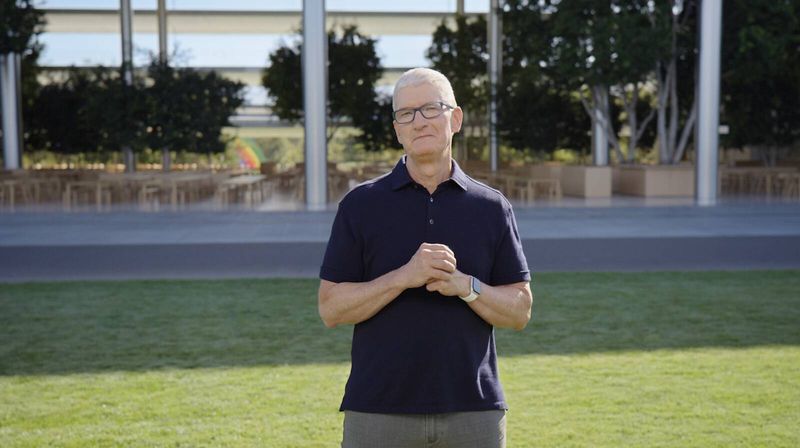Apple CEO Tim Cook has explained why the company releases a new iPhone every year, what the device will be like in the future, what he is personally doing to reduce his carbon footprint, and more in a new interview with Brut.

The brief interview, shot at an Apple data center and solar power facility in Denmark, delves mainly into Cook's opinion on various environmental issues such as "greenwashing." Cook explained that Apple wants to contrast its secrecy about its products with openness about its environmental efforts because it wants to be copied by others. Cook added that Apple still has more work to do in terms of renewable power and use of recycled materials to reach its environmental goals.
When asked if "we really need a new iPhone every year," Cook answered:
The interviewer then asked what the iPhone will be like 20 or 30 years into the future:
When asked what Cook does personally to help the environment, he responded:
See the full interview video over on Brut.'s website or TikTok.
This article, "Apple CEO Tim Cook Talks the Future of iPhone, Driving an EV, and More in New Interview" first appeared on MacRumors.com
Discuss this article in our forums
Source: TechRadar

The brief interview, shot at an Apple data center and solar power facility in Denmark, delves mainly into Cook's opinion on various environmental issues such as "greenwashing." Cook explained that Apple wants to contrast its secrecy about its products with openness about its environmental efforts because it wants to be copied by others. Cook added that Apple still has more work to do in terms of renewable power and use of recycled materials to reach its environmental goals.
When asked if "we really need a new iPhone every year," Cook answered:
I think having an iPhone every year for those people that want it is a great thing. And what we do is we allow people to trade in their phone. And so we then resell that phone if it's still working. And if it's not working, we've got ways of disassembling it and taking the materials to make a new iPhone out of.
The interviewer then asked what the iPhone will be like 20 or 30 years into the future:
I think it'll be carbon neutral. I think obviously it will be way ahead of where it currently is, but I wouldn't want to give you all of our secrets in that regard. I'll just say from an environmental point of view, it'll be carbon neutral.
When asked what Cook does personally to help the environment, he responded:
I do drive an electric car. I try to avoid plastics and plastic bottles. I recycle. I compost. All of these things I try to do, everything I do, I try my best to do something that has a lower carbon footprint.
See the full interview video over on Brut.'s website or TikTok.
This article, "Apple CEO Tim Cook Talks the Future of iPhone, Driving an EV, and More in New Interview" first appeared on MacRumors.com
Discuss this article in our forums
Source: TechRadar